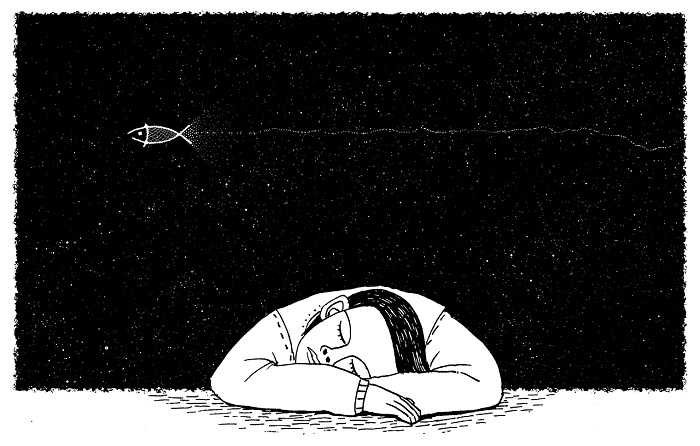Why Sleep is Important for Your Mind, Body, and Soul
From boosting immunity to sharpening focus, learn the crucial reasons your nightly slumber is non-negotiable for a vibrant life.

The alarm clock blares at 5 AM. You hit snooze, promising yourself “just five more minutes” before reluctantly dragging yourself out of bed. Sound familiar? In our productivity-obsessed culture, sleep is often the first thing we sacrifice.
Many regard it as downtime – hours where nothing productive happens. This perception couldn’t be further from the truth.
Sleep isn’t merely a passive state of unconsciousness. Rather, it’s an active period where your body and brain undertake critical maintenance and restoration.
Research consistently shows that quality sleep is as essential to health as nutrition and exercise, forming the third pillar of well-being. Without sufficient sleep, both immediate performance and long-term health suffer substantially.
This article explores why sleep is important and how adequate sleep benefits your physical health, sharpens mental acuity, and contributes to emotional balance – the mind, body, and soul trifecta that creates a foundation for a vibrant life.
What Happens When We Don’t Get Enough Sleep?

Before diving into the benefits, let’s examine the flip side – what happens when we don’t get enough sleep?
- The immediate effects are obvious—brain fog, irritability, poor concentration, and diminished reaction time. But the consequences extend far beyond feeling groggy.
- Sleep deprivation has been linked to serious health conditions including heart disease, kidney disease, high blood pressure, diabetes, stroke, obesity, and depression. [1]
- The economic impact is substantial too – sleep-deprived workers cost employers approximately $1,967 per employee annually in lost productivity. [2]
- Perhaps most concerning is sleep’s connection to accelerated aging. A 2014 study in the British Journal of Dermatology found that women with poor sleep showed more signs of skin aging, slower skin repair, and felt less attractive. Good sleepers healed faster and had healthier-looking skin and better self-image. [3]
“But doesn’t everyone need different amounts of sleep? Maybe I’m one of those people who just functions well on 5 hours.”
While individual sleep needs vary somewhat, research consistently shows that regularly sleeping less than 7 hours is associated with adverse health outcomes for most adults. The myth of the “efficient sleeper” who thrives on minimal sleep is largely that – a myth.
Why Sleep is Important?
So, what Happens When You Get A Good Night’s Sleep?

1. Strong Immune System
Ever notice how you’re more likely to catch a cold when you’re sleep-deprived? That’s no coincidence. During sleep, your immune system releases proteins called cytokines that help fight infection and inflammation.
Sleep deprivation = fewer protective cytokines and antibodies.
A 2009 study found that people who slept less than six hours a night were four times more likely to catch a cold compared to those who got more than seven hours. That’s a massive difference from just one hour less sleep per night.
Additionally, proper sleep enhances T-cell functioning – these specialized immune cells recognize and kill infected cells. [4]
Basically, getting enough zzz’s gives your body the best chance to fight off invaders before they make you sick.
2. Physical Repair and Restoration
Sleep isn’t just rest – it’s active recovery. During deep sleep stages, blood flow to muscles increases, delivering extra oxygen and nutrients that facilitate repair and growth. This is particularly important for athletes or anyone doing physical training, as muscle recovery happens primarily during sleep. [5]
Your body also produces most of its growth hormone during deep sleep. This hormone not only helps children grow but continues throughout life to aid in tissue repair, bone density maintenance, and fat metabolism. [6]
3. Boosting Cardiovascular Health
Your heart deserves a break too. During normal sleep, your blood pressure drops by about 10-20%. [7]
This nightly dip is important for cardiovascular health. People who don’t experience this nighttime decrease in blood pressure (non-dippers) face a greater risk of heart disease and stroke.
Research published in the Journal of the American College of Cardiology found that consistently sleeping less than six hours per night increases the risk of heart attack or stroke by 20%. When you consistently shortchange sleep, your heart never gets its much-needed downtime.
4. Metabolic Balance and Weight Management
Trying to lose weight? Don’t skip sleep. Sleep deprivation disrupts the balance of key hormones that regulate hunger – ghrelin (which stimulates appetite) and leptin (which signals fullness) – according to Yale Medicine.
Too little sleep = more ghrelin, less leptin, and suddenly that box of donuts becomes irresistible.
Additionally, insufficient sleep affects insulin sensitivity, potentially increasing risk for type 2 diabetes. A single night of poor sleep can create a temporary state resembling insulin resistance even in healthy individuals. [8]
Sleep and metabolism are so interconnected that some researchers now consider chronic sleep deprivation a risk factor for obesity alongside poor diet and lack of exercise.
Explore our Weight Loss Articles
5. Enhanced Cognitive Functions
Ever tried solving a complex problem after a night of tossing and turning? Yeah, not happening.
Sleep plays a fundamental role in multiple cognitive processes. During sleep, your brain consolidates memories, moving information from short-term to long-term storage. This process is critical for learning new skills and retaining information.
REM sleep in particular boosts creative problem-solving abilities. Studies show that people are 33% more likely to make connections between distantly related ideas after sleep. [9]
That “sleep on it” advice? Legit science, not just an old saying.
Concentration and attention span also take major hits from insufficient sleep. One study found that moderate sleep deprivation produces impairments equivalent to alcohol intoxication.
Think about that next time you’re sleep-deprived and driving – it’s like getting behind the wheel after having a few drinks.
6. Emotional Regulation and Mental Well-being
Sleep and mental health exist in a bidirectional relationship. Poor sleep contributes to negative emotional states, while better sleep promotes emotional resilience. During REM sleep, the brain processes emotional experiences, helping you regulate and respond to emotions appropriately.
Sleep deficiency has been strongly linked to increased risk of depression, anxiety, and other mental health disorders. People with insomnia are five times more likely to develop depression says Elizabeth Blake Zakarin, an assistant professor of psychology (in Psychiatry) and a clinical psychologist at the Columbia University Clinic for Anxiety and Related Disorders.
Adequate sleep also helps manage cortisol levels (the stress hormone), reducing your baseline stress level and improving your ability to cope with daily challenges. Who doesn’t need that?
7. Overall Vitality and Inner Balance
There’s a qualitative difference between existing and truly living that often comes down to energy levels and emotional balance. Well-rested individuals consistently report higher life satisfaction scores and greater overall happiness compared to sleep-deprived counterparts.
Rather than relying on caffeine and sugar – which provide temporary energy boosts followed by crashes – proper sleep delivers sustained energy throughout the day. This natural energy supports engagement in meaningful activities and relationships, contributing to that elusive sense of fulfillment many seek.
Sleep also enhances presence. When you’re exhausted, you’re more likely to operate on autopilot, missing the richness of each moment. Proper rest allows fuller engagement with life’s experiences – both challenges and joys.
Sleep Needs Across the Lifespan
| Age Group | Recommended Hours |
|---|---|
| Newborns (0-3 months) | 14-17 hours |
| Infants (4-12 months) | 12-16 hours |
| Toddlers (1-2 years) | 11-14 hours |
| Preschoolers (3-5 years) | 10-13 hours |
| School-age (6-12 years) | 9-12 hours |
| Teens (13-18 years) | 8-10 hours |
| Adults (18-64 years) | 7-9 hours |
| Older Adults (65+ years) | 7-8 hours |
NOTES:
- While these guidelines provide a starting point, individual needs vary. Some people genuinely function best with 7 hours, while others need a full 9 hours to feel their best (like me). The key indicator isn’t just how many hours you sleep but how you feel during the day.
- Quality matters as much as quantity. Six hours of uninterrupted, deep sleep is more restorative than 8 hours of fragmented sleep. Creating an optimal sleep environment—dark, quiet, cool, and comfortable—plays a major role in sleep quality.
- The concept of “sleep debt” is real. If you consistently undersleep during the week, you can’t fully “catch up” on weekends. This irregular pattern disrupts your circadian rhythm and can contribute to what scientists call “social jet lag”—similar to the disorientation of crossing time zones.
Practical Steps to Improve Sleep Quality
- Creating a consistent sleep schedule reinforces your body’s sleep-wake cycle. Try going to bed and waking up at similar times, even on weekends.
- Avoid screens before bedtime as the blue light emitted suppresses melatonin production. The National Sleep Foundation recommends turning off electronic devices at least 30 minutes before bed.
- Some plants like lavender and jasmine have been shown to promote relaxation and improve sleep quality. A 2019 study found that lavender aromatherapy improved sleep quality in patients with anxiety disorders. For a full list of plants to add to your bedroom, check this article: 12 Plants For Bedroom To Help Sleep Quality And Treat Insomnia
- Regular exercise promotes sleep, but timing matters. Exercise raises core body temperature and stimulates the body, so completing workouts at least 1-2 hours before bedtime is generally recommended for optimal sleep.
Looking to improve your sleep?
Making Sleep a Non-Negotiable Priority
Sleep isn’t a luxury or sign of laziness—it’s a biological necessity as fundamental as food and water. The evidence is clear: adequate sleep strengthens your immune system, supports heart health, maintains metabolic balance, enhances cognitive function, stabilizes mood, and contributes to overall life satisfaction.
When you prioritize sleep, you’re not losing time—you’re investing in higher quality waking hours. Those extra hours of sleep translate to greater productivity, creativity, emotional regulation, and physical health during your waking hours.
Sleep deserves the same attention and care you give to diet and exercise. Your future self—with sharper mind, healthier body, and more balanced emotional state—will thank you for the investment you make tonight and every night in quality sleep.
Are you ready to give sleep the priority it deserves?
